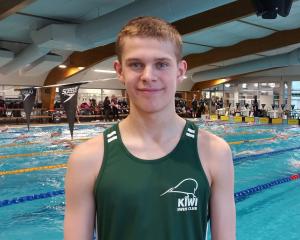But for the New Zealand women's quadruple sculls crew of Sarah Gray, Louise Trappitt, Fiona Bourke and Eve MacFarlane, catching a crab spelt the end of their Olympic dream.
The foursome looked to be charging their way into the Olympic final at Eton Dorney on Monday night (New Zealand time) when Trappitt's oar caught the water and snapped.
It was like the brakes had been slammed as the boat slipped back down the field. The world championship bronze medallists were suddenly out of the running, with just 500m left to race.
As terrible as it was for the four young women, could lightning strike a second time and derail gold medal favourites Hamish Bond and Eric Murray?
The pair produced a stunning effort in the heat, recording a world-best time. Seemingly nothing short of an unforeseen disaster could rob them of a medal.
According to Otago Rowing Association president Neil Burrow, we can all relax.
"It happens a lot in the novice class," Burrow responded when asked if a crab was a common occurrence in rowing.
"A lot of the time, if you catch a crab, you can recover and I think they actually would have, if the oar had not broken."
Sometimes a crab can be put down to choppy water or a loose rigging. But more often than not it is a technique failure. When the pressure goes on in the final third of the race, and athletes start feeling the pinch, arms get tired, grips loosen and technique can get sloppy.
"It could happen to [Bond and Murray] but if something breaks within the first 100m they will stop the race and start again.
But outside the 100, that is it.
"But I would think, with their skills, it would be very, very unlikely to happen to them. So I'm not worried about them. I still have faith."
Burrow is picking the New Zealand rowing team will win five medals and two of them gold.












